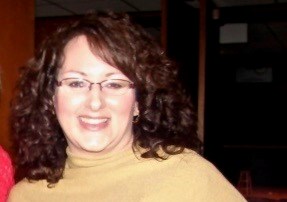Three weeks ago, New York Times reporter Rukmini Callimachi arrived at the Al Hawl refugee camp in northeastern Syria looking for Americans — and found at least one Canadian with ties to the Tri-Cities.
As the newspaper’s ISIS correspondent, Callimachi was searching for the families of ISIS fighters, ones that had fled the last few villages held by the crumbling Caliphate.
Two women were brought to Callimachi, clad in black burkas from head to toe and speaking with what appeared to be American accents, according to a recent story in The New York Times.
Over the next two hours, Callimachi would learn both women were caught in a kind of stateless limbo for turning their backs on their home nations. But the older one, Kimberly Gwen Polman, had been processed into the pseudo-prison camp as a Canadian.
Polman, who reportedly grew up in a devout Mennonite family in Hamilton, Ont., lived in Metro Vancouver before joining the Islamic State. In a local twist, she reportedly studied at the David Lam Campus of Douglas College in Coquitlam and even won the Women's Opporunity Award from the Tri-Cities branch of Soroptomists International.
Based on an interview with Callimachi, as well as reporting by her and New York Times colleague Catherine Porter, we’ve put together a timeline of Polman’s journey, from an aspiring child advocate to an imprisoned ex-bride of the Islamic State.
Polman is among 29 Canadian nationals trapped or imprisoned in Syria, according to the lobby group Families Against Violent Extremism.
The Tri-City News asked the Canadian government whether it has tried to repatriate Canadians held in Al Hawl camp. In response, government spokesperson Richard Walker said Ottawa is aware of recent reports of detained Canadians in Syria but that because of the security situation, the Canadian government’s ability to provide consular service is “extremely limited.”
But according to Callimachi, who just spent three weeks in the region, Polman is being held in a Kurdish area that has been liberated for several years.
“There are plenty of Westerners going there,” she said. “There's no justifiable explanation for claiming that they'd be putting Canadian lives at risk to go to the prisons or to the camps.”
Canadians want to see the detainees who supported ISIS held accountable for their deeds in Syria. They must be brought back to Canada and tried. The blameless infants and children... https://t.co/uoJcj0DlPC
— Families Against Violent Extremism (FAVE) (@FAVE_Canada) February 24, 2019
“They're effectively stateless. They're in legal limbo with very little recourse," said Callimachi. "Now, an argument can be made that what they've done is unforgivable. They have turned they're backs on their country. They've joined a terrorist group, which is hell-bent on destroying the very society that they're now trying to rejoin."
On the other hand, Callimachi said, the most powerful argument for repatriating foreign fighters and their families comes from Canada's Kurdish allies in Syria.
“These foreign fighters, including the wives, came to Syria and destroyed a significant section of that country," Callimachi said. "Why is it their responsibility to hold on to them? Why is it their responsibility to try them, to feed them, to clothe them, to keep them in the camp?
"They're our citizens.”
—With files from Stefan Labbé and Diane Strandberg



